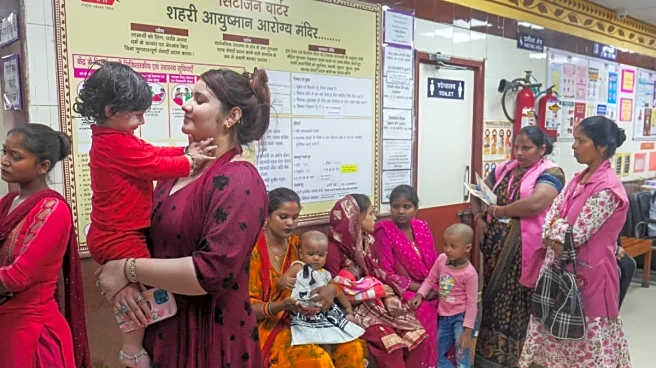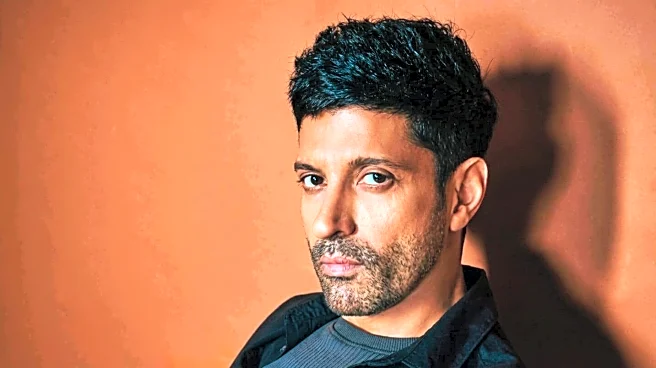Even though the Ayushman Arogya Mandir scheme was launched in 2018 by the Union Health Ministry, the national capital had to wait till 2025 to get its first set of these primary health centres. Now in about
eight months of change in the regime, the city has over 200 Ayushman Arogya Mandir, with 70 added on Tuesday.
India’s first Ayushman Arogya Mandir was launched in Bijapur, Chhattisgarh in April 2018. In the first year, over 17,000 Ayushman Arogya Mandirs were operationalised across the country.
Delhi rolled out its first Ayushman Arogya Mandirs this year, marking a shift from the AAP government’s Mohalla Clinics to the BJP government’s preferred primary healthcare model.
आज दिल्लीवासियों की सेवा में 70 और नए आयुष्मान आरोग्य मंदिर समर्पित किए गए हैं।
हर आयुष्मान आरोग्य मंदिर यह सुनिश्चित करने का संकल्प है कि दिल्ली के प्रत्येक परिवार को गुणवत्तापूर्ण और निशुल्क स्वास्थ्य सेवाएं उनके घर के पास ही उपलब्ध हों। #Delhi70ArogyaMandir pic.twitter.com/SdOdH3sise
— Rekha Gupta (@gupta_rekha) November 25, 2025
शक्ति नगर से आज दिल्ली के विभिन्न जिलों में 70 नए आयुष्मान आरोग्य मंदिरों का शुभारंभ हुआ है। दिल्ली सरकार राजधानी में आयुष्मान आरोग्य मंदिरों की संख्या लगातार बढ़ा रही है, क्योंकि हमारा लक्ष्य है कि बेहतर स्वास्थ्य सेवाएं आपके घर के पास, आपकी कॉलोनी में उपलब्ध हों।
इन आयुष्मान… pic.twitter.com/PPEPNIEaW3
— Rekha Gupta (@gupta_rekha) November 25, 2025
Why Ayushman Arogya Mandirs?
Ayushman Arogya Mandirs – called the Urban Primary Health Centres (UPHCs) – are modern dispensaries equipped with qualified doctors, nurses, vaccination and dressing teams, essential medicines, and in-house testing capabilities.
These ‘Mandirs’ serve as access points for Ayushman Health Card enrollment under the Pradhan Mantri Jan Arogya Yojana (PMJAY), available right within their locality.
Ayushman Arogya Mandir delivers a comprehensive range of free services: OPD consultations, diagnostic testing, essential drug distribution along with yoga sessions and other wellness activities.
These centres also offer maternal and antenatal care, neonatal and child health services, adolescent healthcare, family planning, contraceptive and reproductive health services, management of communicable diseases, screening and control of non-communicable diseases, eye and ear, nose, and throat (ENT) care, basic dental services, elderly care, mental health screening and treatment, and emergency medical assistance.
The Delhi Government has implemented Indian Public Health Standards (IPHS) in Ayushman Arogya Mandirs to ensure uniform infrastructure, human resources, medicines, diagnostic facilities, equipment, and governance systems. These standards guarantee that all citizens receive equitable and continuous healthcare services.
How Are Ayushman Arogya Mandirs Different from Mohalla Clinics?
An upgraded version of Mohalla Clinics, Ayushman Arogya Mandir offers a wider range of services to the patients at a closer location than the big government hospitals.
The Mohalla Clinics offered limited healthcare services. In contrast, the Ayushman Arogya Mandirs are equipped with advanced infrastructure and modern facilities to provide wider and more effective health services.
Also, unlike the Mohalla Clinics, the Delhi government has decided that it will no longer operate its health centres from rented premises, as adequate government-owned spaces are available for the Arogya Mandirs.
“These institutions are needed because they not just reduce the load on the hospitals but also provide better health facilities at a closer location to the public,” a Health Department official told News18, adding that patients no longer need to visit large hospitals for basic treatments, medical tests and medicines.
Till Monday, there were 168 Ayushman Mandirs while the plan is to have 1,139 Ayushman Arogya Mandirs across the city. Terming these institutes as the “backbone of Delhi’s primary healthcare system” the government aims to have four to five Aarogya Mandirs in every ward and about 15 in each Assembly constituency.
In June, when 33 Ayushman Arogya Mandirs were inaugurated, Delhi Health Minister Dr. Pankaj Kumar Singh called it a “historic step” towards healthier Delhi.
The government is aiming to open about 100 more Ayushman Arogya Mandirs before year-end.
As more centres open in neighbourhoods across the capital, officials say residents will no longer need to travel long distances or queue at major hospitals for routine medical care. The rapid expansion of Ayushman Arogya Mandirs will make affordable, reliable and continuous primary healthcare a standard feature of every Delhi locality.








/images/ppid_a911dc6a-image-177095803945834897.webp)

/images/ppid_a911dc6a-image-17709580293397222.webp)
/images/ppid_59c68470-image-177095764644795315.webp)

/images/ppid_59c68470-image-177095772128260787.webp)
/images/ppid_59c68470-image-17709576039333966.webp)